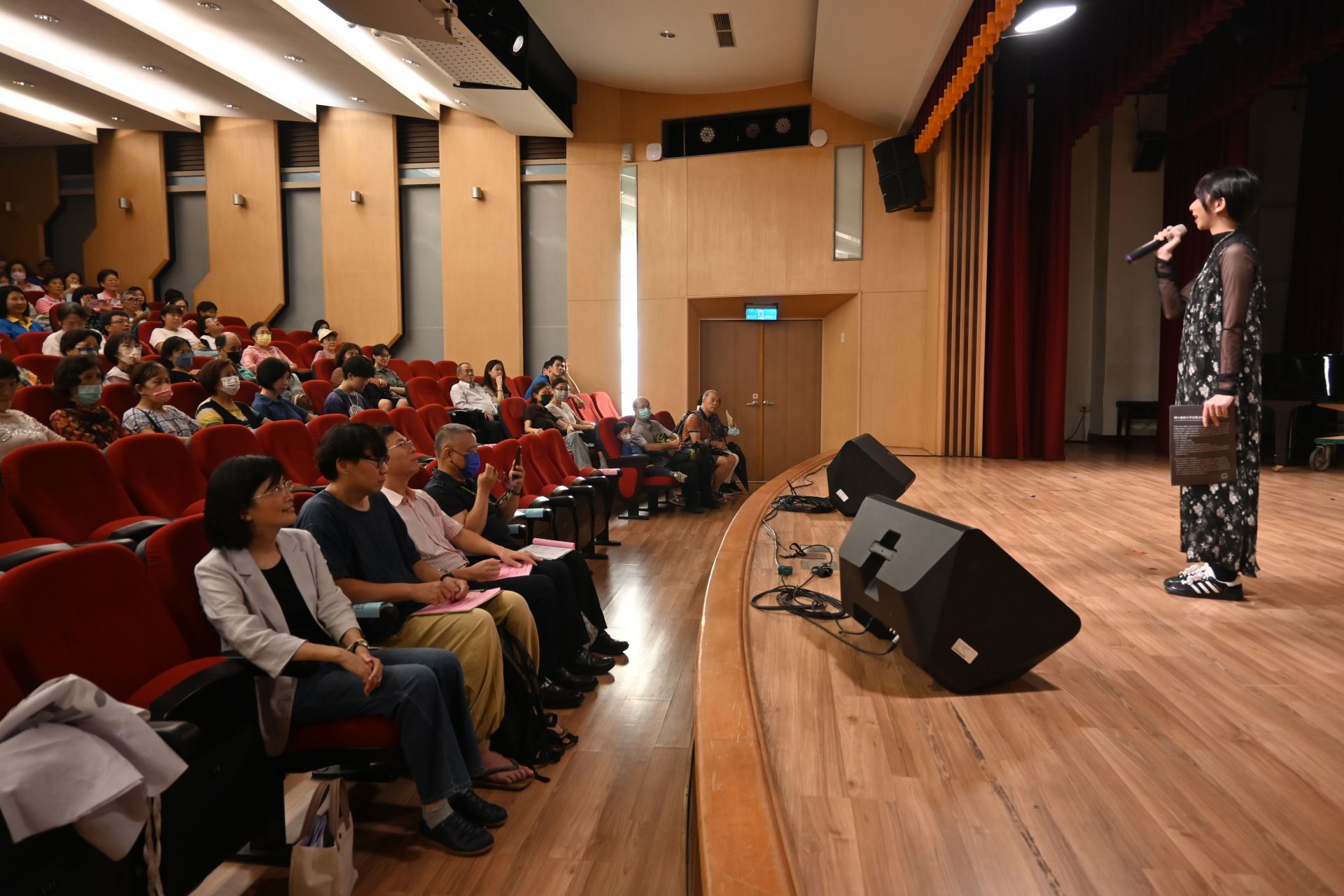Written by Stephanie Chiang, Staff Reporter of Taiwan News. Image credit to News Center.
TAINAN (Taiwan News) — National Cheng Kung University (NCKU) on Tuesday (Nov. 29) held the 2022 Tainan Low Carbon City Conference, during which the school, Tainan City Government, the European Chamber of Commerce Taiwan (ECCT), and the Shalun Innovation Alliance (SIA) renewed a memorandum of understanding (MOU).
The event included an in-depth introduction to NCKU’s sustainability initiative, which gave an overview of the school’s vision and achievements. Additionally, representatives from the ECCT Low Carbon Initiative, Merck, Atlas Copco, Schneider Electric, and RCI Engineering presented a series of keynote speeches on various sectors’ efforts in carbon reduction and sustainability.
Tainan Mayor Huang Wei-che (黃偉哲) said at the event’s opening that the MOU signed this year included an additional talent cultivation program. This was especially important considering talent is the most sought-after resource in the world.
Huang added that Tainan is the first city in Taiwan to promulgate a self-government ordinance for a low-carbon city. So far, the city has developed an annual solar power capacity of 4.79 gigawatts, reducing carbon emissions by 2.41 million tons every year.
ECCT CEO Freddie Hoglund said this year marked the ninth consecutive year the chamber has joined the Tainan Low Carbon City Conference at NCKU. He referred to the 2022 United Nations Climate Change Conference, which ended not long ago, describing it as a disappointment as “there was no final agreement in phasing out fossil fuels.”
One of the main objectives of the ECCT, Hoglund said, was to transition to renewable energy and “get away” from fossil fuels. “It’s also very important for Taiwan, for the sake of energy security. We understand that the situation is somewhat vulnerable. Of course, the quicker we can get over to renewables, the better.”
NCKU President Su Huey-jen (蘇慧貞), whose achievements in integrating Sustainable Development Goals with NCKU’s governance recently garnered her an Outstanding Professional Award at the Global Corporate Sustainability Forum on Nov. 16, said that the school has always aspired to be a leader of social change and aims to cultivate talent needed to take on challenges posed by the “next phase of development.” She said the school also strives to come up with the science and technology that will be implemented by various sectors to address the world’s problems while upholding humanistic values.
Su told Taiwan News in an interview that NCKU has always positioned itself as a hub and platform that connects stakeholders in all sectors when promoting sustainable development, because knowledge in all fields and everyone’s participation are required for change to happen. By engaging with the government and the private sector through programs like the ECCT, the school bolsters its strength as an academic institute “best qualified to translate knowledge and technology into implementation.”
“This is what I am most proud of — at NCKU, we realize who we are and what we can do. There is a strong sense of solidarity. We have also demonstrated that we are indeed qualified to be a leader in sustainable development.” Su added that the school addresses relevant issues from a human-centric and culturally sensitive perspective, because ultimately, “What we’re doing is solving problems for people.”
This year’s Tainan Low Carbon City Conference’s theme is “Towards Sustainable Cities: Energy Saving and Green Building,” so Su shared how NCKU manages its campus, which is home to many historical buildings. “It takes a tremendous amount of resources to renovate the buildings,” she said.
“It is a challenge. It requires a lot of innovative thought to come up with ways to manage the buildings and make them energy efficient.” According to Su, as some historical buildings are unable to support high-tech installations, the school sometimes has to be creative and work with low-tech gadgets and the aging buildings’ architecture in ensuring energy conservation.
She said the most difficult decision to make is to tear down old buildings “because they contain memories and time. And no matter how rich, how powerful you are, you cannot buy time.” One of the biggest challenges, she added, is finding the optimal solution for the dilemma.
Source:NCKU holds Tainan Low Carbon City Conference featuring European Chamber of Commerce
TAINAN (Taiwan News) — National Cheng Kung University (NCKU) on Tuesday (Nov. 29) held the 2022 Tainan Low Carbon City Conference, during which the school, Tainan City Government, the European Chamber of Commerce Taiwan (ECCT), and the Shalun Innovation Alliance (SIA) renewed a memorandum of understanding (MOU).
The event included an in-depth introduction to NCKU’s sustainability initiative, which gave an overview of the school’s vision and achievements. Additionally, representatives from the ECCT Low Carbon Initiative, Merck, Atlas Copco, Schneider Electric, and RCI Engineering presented a series of keynote speeches on various sectors’ efforts in carbon reduction and sustainability.
Tainan Mayor Huang Wei-che (黃偉哲) said at the event’s opening that the MOU signed this year included an additional talent cultivation program. This was especially important considering talent is the most sought-after resource in the world.
Huang added that Tainan is the first city in Taiwan to promulgate a self-government ordinance for a low-carbon city. So far, the city has developed an annual solar power capacity of 4.79 gigawatts, reducing carbon emissions by 2.41 million tons every year.
ECCT CEO Freddie Hoglund said this year marked the ninth consecutive year the chamber has joined the Tainan Low Carbon City Conference at NCKU. He referred to the 2022 United Nations Climate Change Conference, which ended not long ago, describing it as a disappointment as “there was no final agreement in phasing out fossil fuels.”
One of the main objectives of the ECCT, Hoglund said, was to transition to renewable energy and “get away” from fossil fuels. “It’s also very important for Taiwan, for the sake of energy security. We understand that the situation is somewhat vulnerable. Of course, the quicker we can get over to renewables, the better.”
NCKU President Su Huey-jen (蘇慧貞), whose achievements in integrating Sustainable Development Goals with NCKU’s governance recently garnered her an Outstanding Professional Award at the Global Corporate Sustainability Forum on Nov. 16, said that the school has always aspired to be a leader of social change and aims to cultivate talent needed to take on challenges posed by the “next phase of development.” She said the school also strives to come up with the science and technology that will be implemented by various sectors to address the world’s problems while upholding humanistic values.
Su told Taiwan News in an interview that NCKU has always positioned itself as a hub and platform that connects stakeholders in all sectors when promoting sustainable development, because knowledge in all fields and everyone’s participation are required for change to happen. By engaging with the government and the private sector through programs like the ECCT, the school bolsters its strength as an academic institute “best qualified to translate knowledge and technology into implementation.”
“This is what I am most proud of — at NCKU, we realize who we are and what we can do. There is a strong sense of solidarity. We have also demonstrated that we are indeed qualified to be a leader in sustainable development.” Su added that the school addresses relevant issues from a human-centric and culturally sensitive perspective, because ultimately, “What we’re doing is solving problems for people.”
This year’s Tainan Low Carbon City Conference’s theme is “Towards Sustainable Cities: Energy Saving and Green Building,” so Su shared how NCKU manages its campus, which is home to many historical buildings. “It takes a tremendous amount of resources to renovate the buildings,” she said.
“It is a challenge. It requires a lot of innovative thought to come up with ways to manage the buildings and make them energy efficient.” According to Su, as some historical buildings are unable to support high-tech installations, the school sometimes has to be creative and work with low-tech gadgets and the aging buildings’ architecture in ensuring energy conservation.
She said the most difficult decision to make is to tear down old buildings “because they contain memories and time. And no matter how rich, how powerful you are, you cannot buy time.” One of the biggest challenges, she added, is finding the optimal solution for the dilemma.
Source:NCKU holds Tainan Low Carbon City Conference featuring European Chamber of Commerce
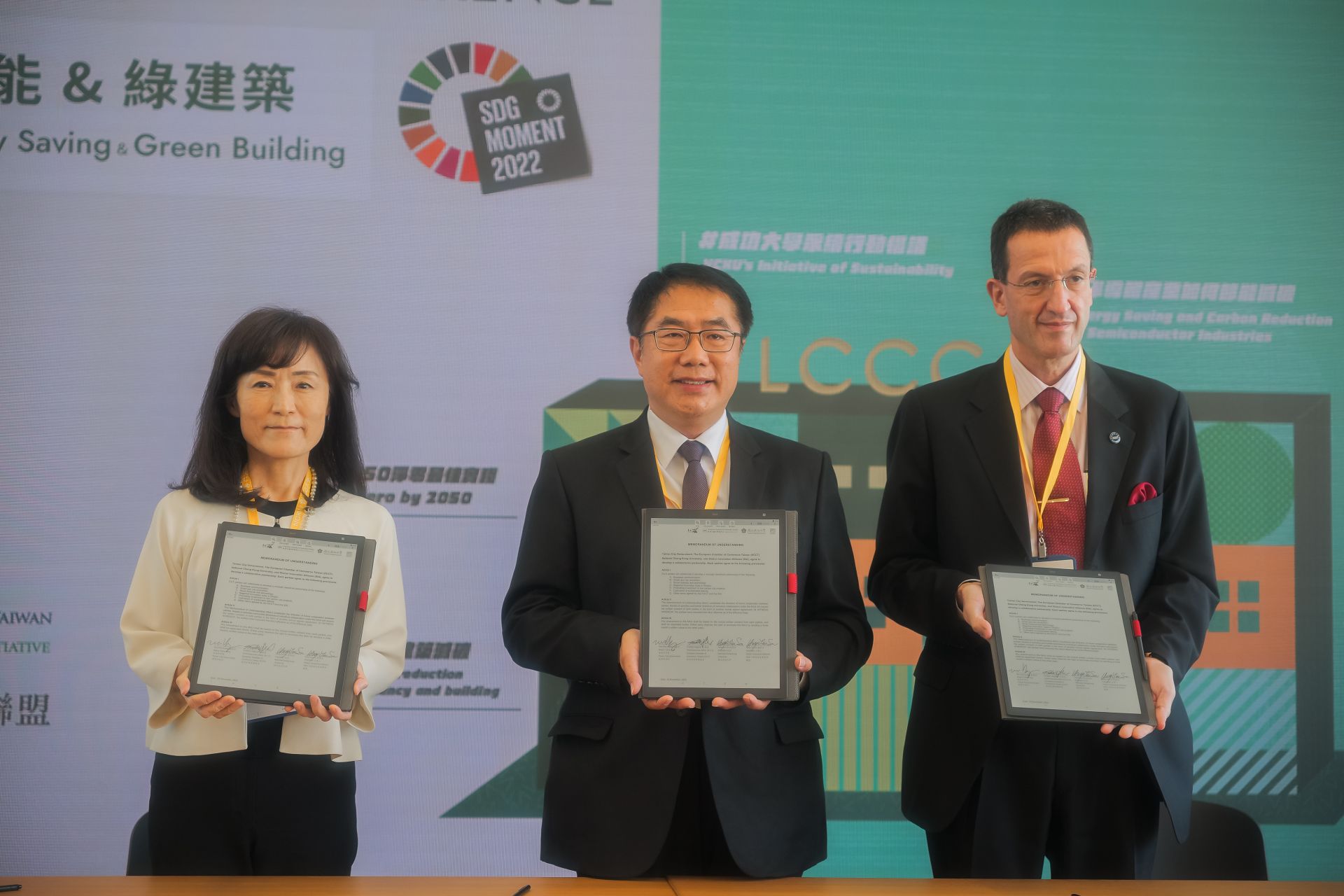
Tainan City Government, ECCT, NCKU, Shalun Innovation Alliance renew MOU, add program for talent cultivation
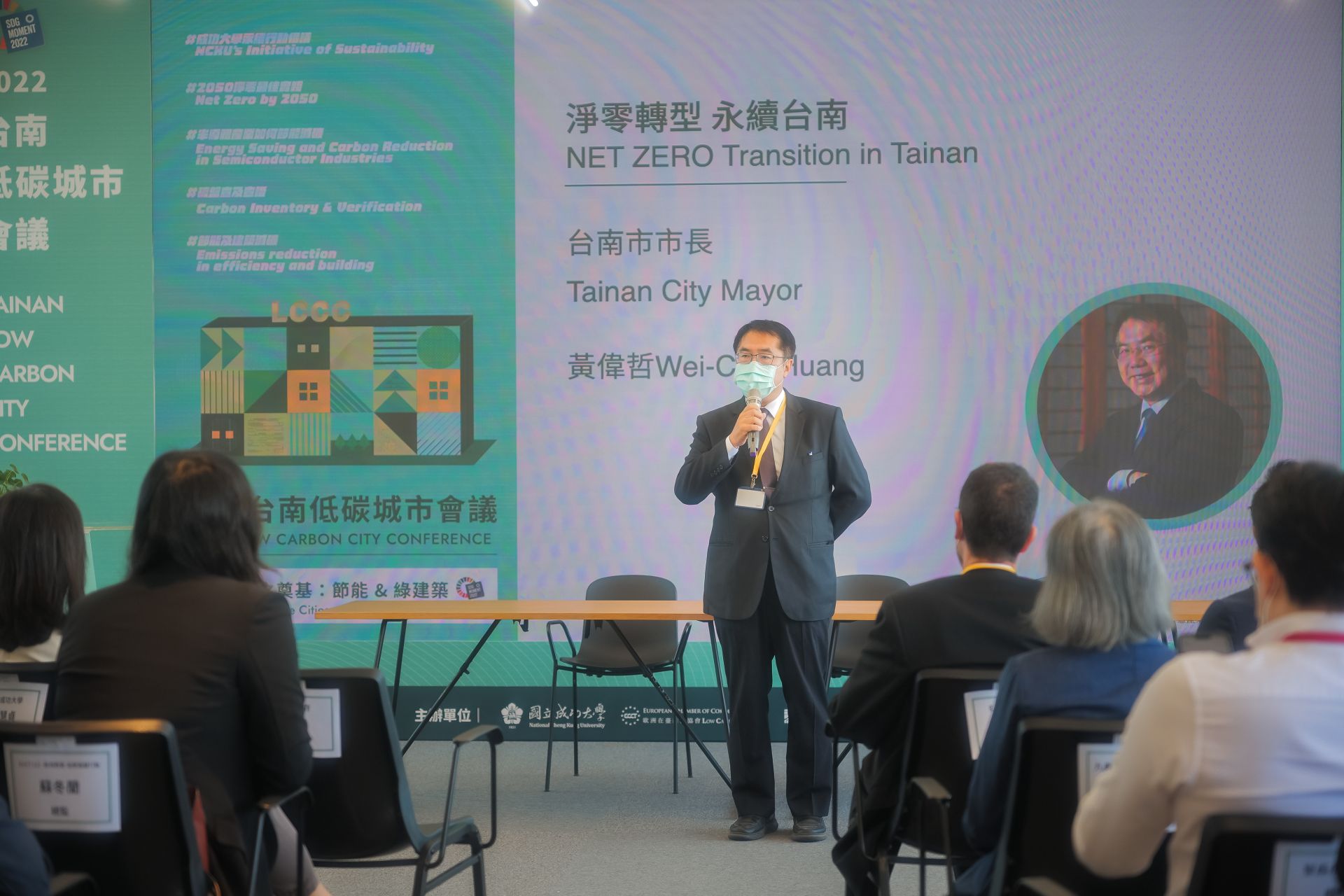
Tainan Mayor Huang Wei-che gives opening remarks at the Tainan Low Carbon City Conference
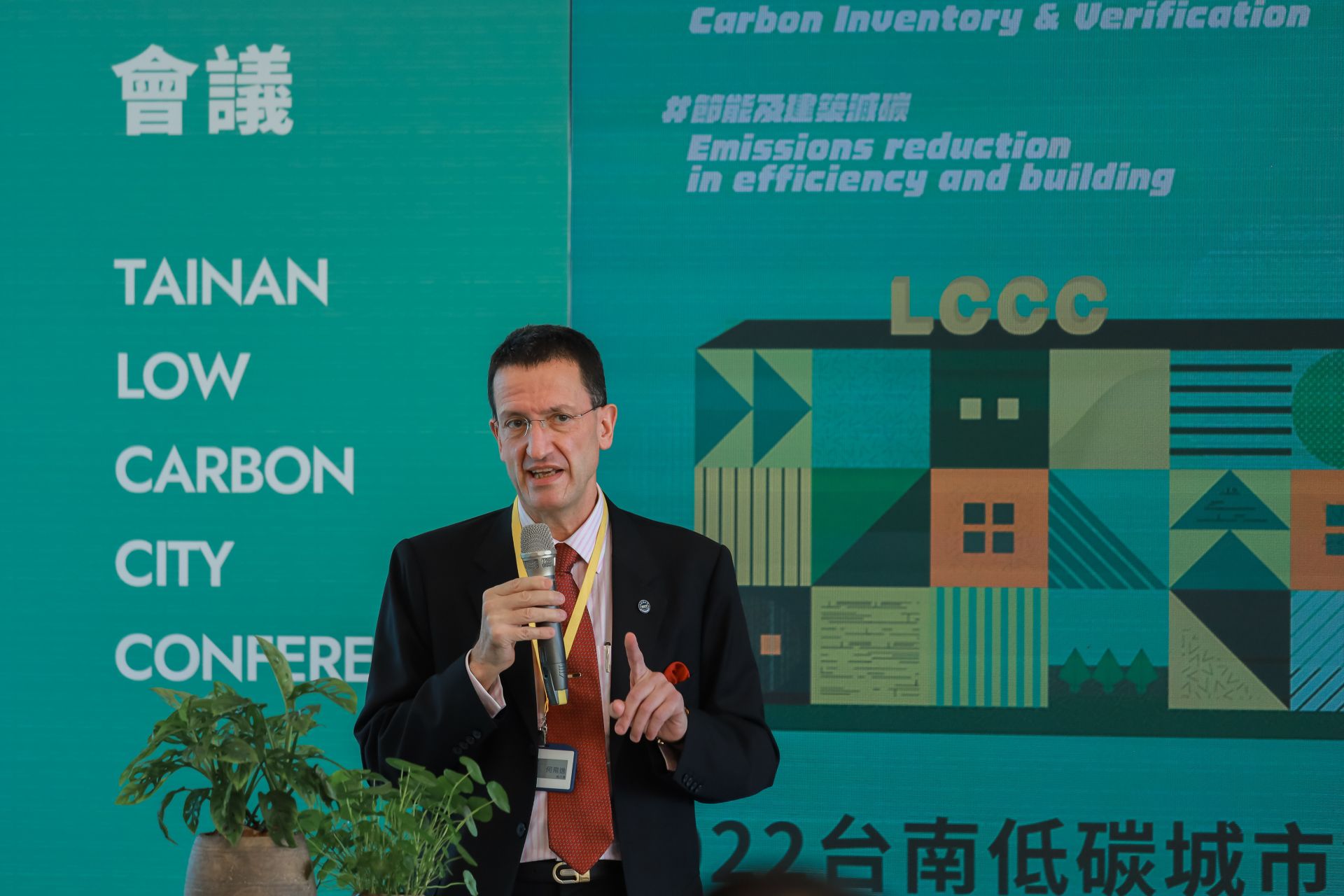
ECCT CEO Freddie Hoglund highlights the urgency to transition from fossil fuels to renewable energy
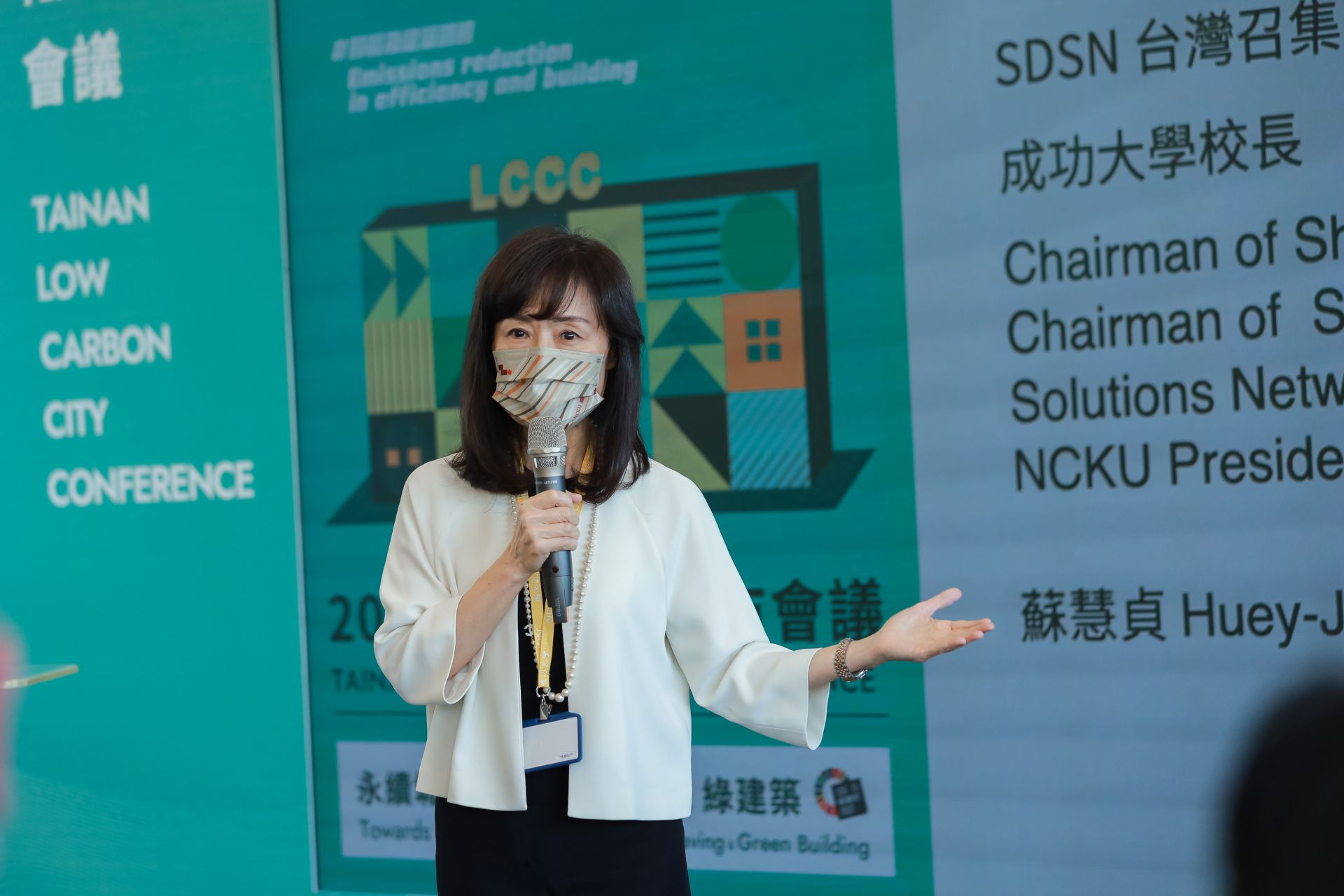
NCKU President Su Huey-jen says the school positions itself as a platform for sustainable development that connects stakeholders in all sectors.
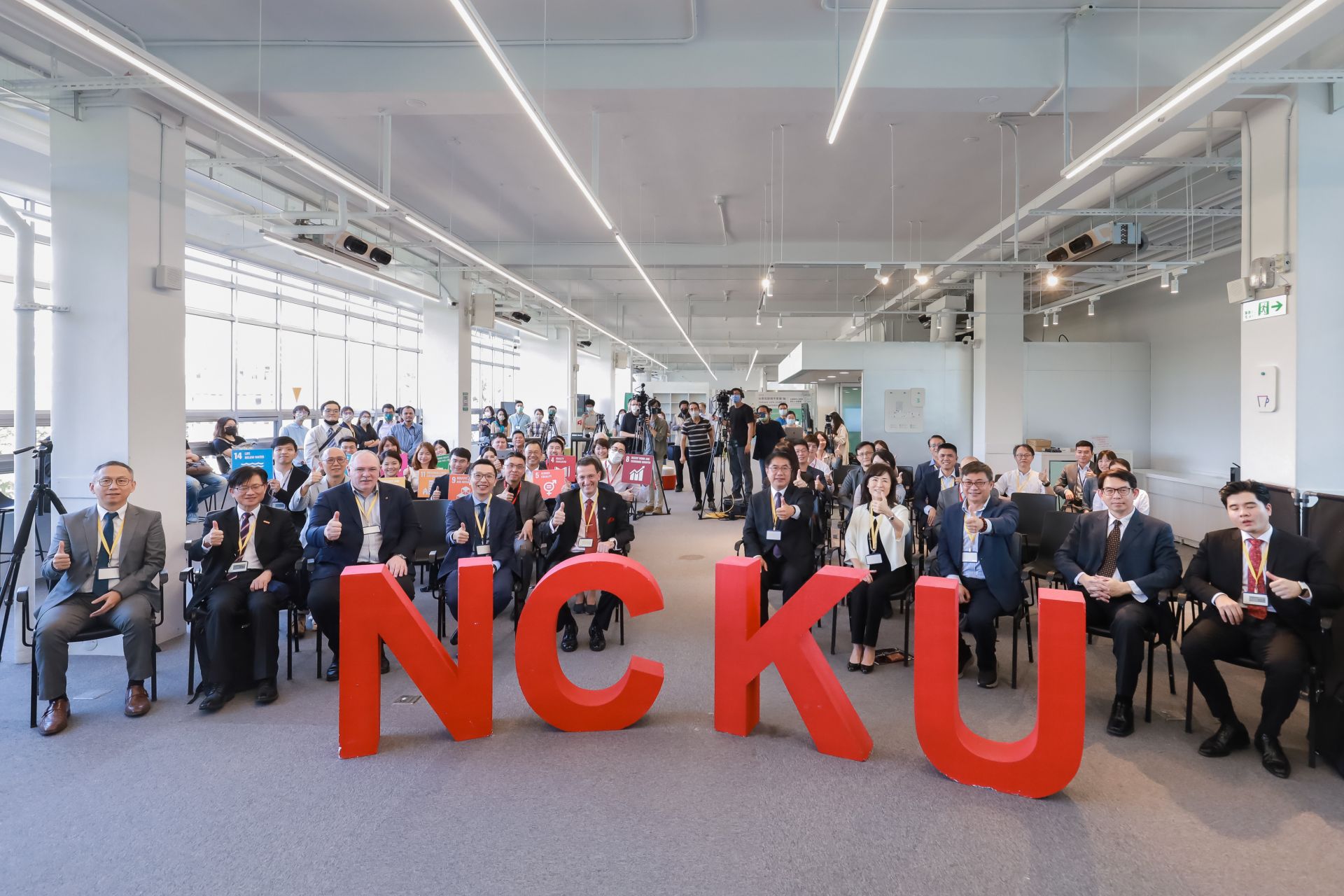
This year’s Tainan Low Carbon City Conference’s theme is “Towards Sustainable Cities: Energy Saving and Green Building
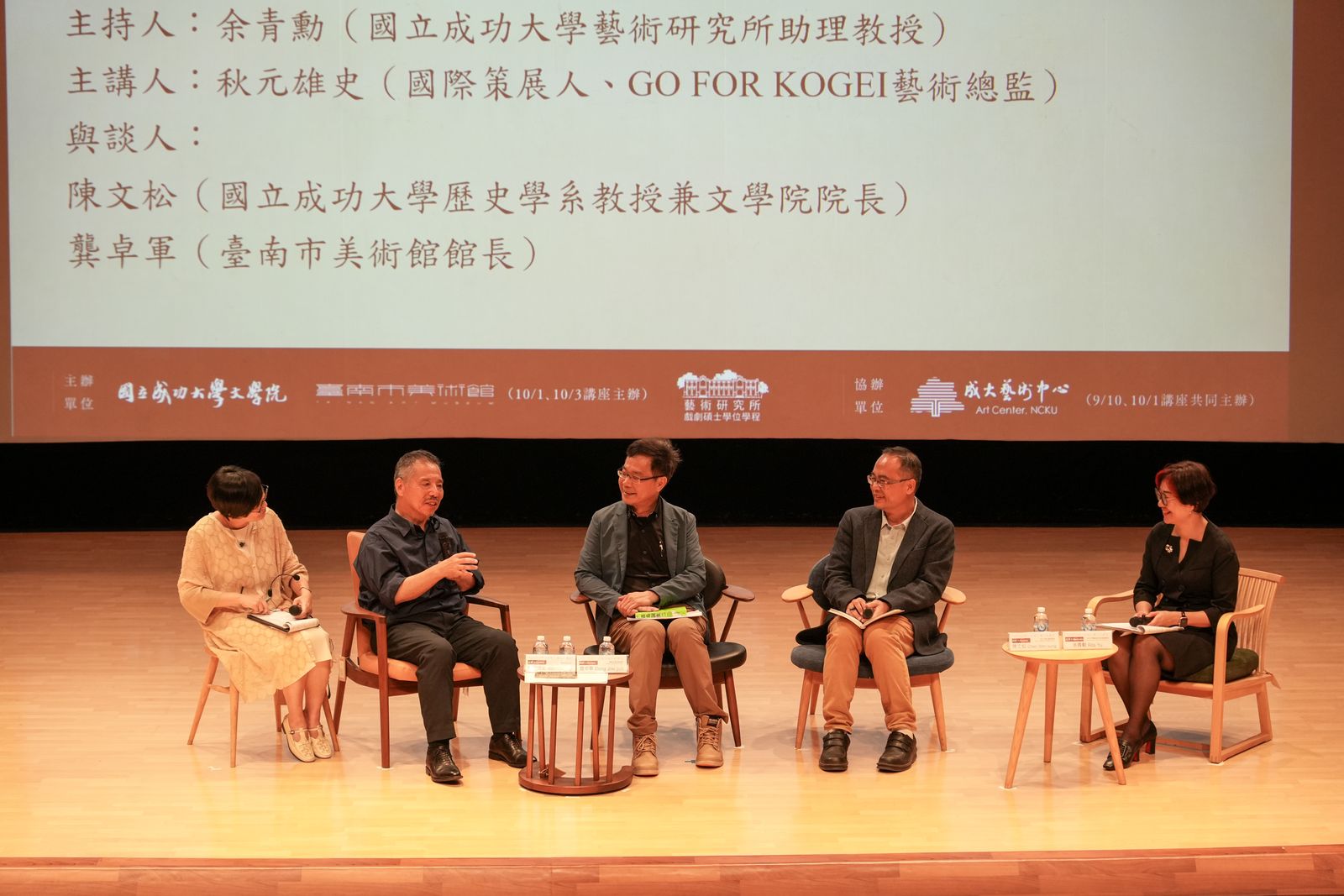
SDG116th “NCKU Humanities Lecture Series” — Yūshi Akimoto Discusses Art, Sustainability, and Regional Revitalization
View more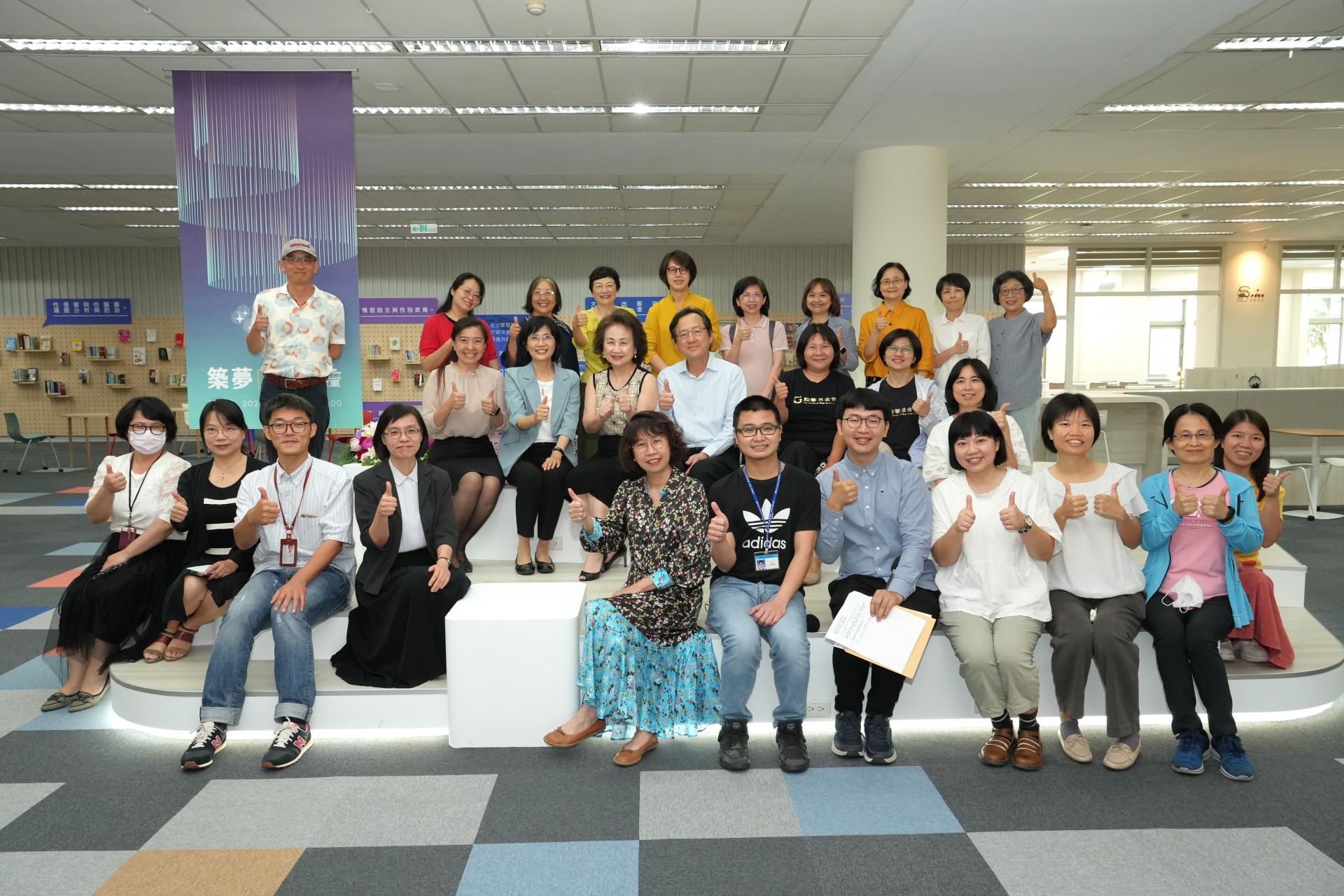
SDG11Dream into Reality, Building Dreams Solidly: Completion and Inauguration of Phase Two Space Transformation at NCKU Library.
View more